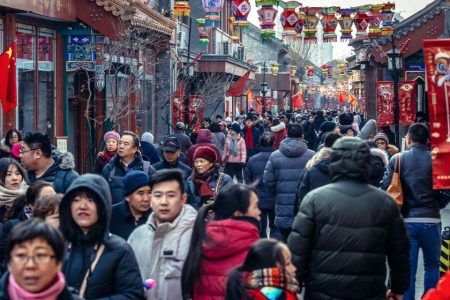China has set up the third – and largest – phase of a state-backed investment fund geared towards growing its domestic semiconductor sector, underscoring the country’s drive for self-sufficiency in the face of aggressive US sanctions, Reuters reports. It has a registered capital of 344 billion yuan (US$47.5 billion).
The China Integrated Circuit Industry Investment Fund provides financing to China’s two biggest chip foundries, Semiconductor Manufacturing International Corporation and Hua Hong Semiconductor, along with several smaller companies. Semiconductors are the basic materials used to make chips for electronic products.
The fund’s first phase was established in 2014 with registered capital of 138.7 billion yuan (US$19.1 billion), and the second phase followed in 2019 with 204 billion yuan (US$28.1 billion).
[See more: The US has stemmed the flow of chips to Huawei, citing ‘national security’]
The third phase of the fund includes investments from six of the country’s largest state-owned banks, including ICBC and China Construction Bank. Its goal is to reduce China’s reliance on the US and other countries for chip-making materials and equipment by boosting domestic production capacities. Earlier this month, the central government urged the country’s top automakers to source at least a quarter of their chips locally by 2025, Nikkei Asia reported.
While the goal has been in place for many years, it has become more urgent as Washington imposes punitive sanctions on China, seeking to hobble the rise of America’s main geopolitical rival.
The US has been tightening its control over the chip market since 2019, when it put Huawei on a trade blacklist – claiming the Shenzhen-headquartered company helps Beijing engage in cyber espionage. Huawei has strongly denied the allegations.




